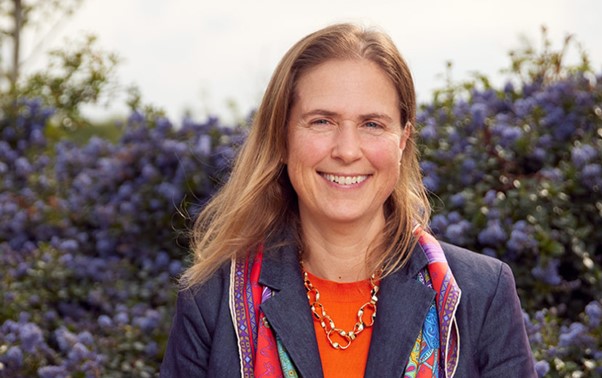Churchill Fellow Dr Sarah Teichmann recently won a prestigious ERC Advanced Grant of €2.5 million to support ‘ThyDESIGN’, a project which aims to generate an organ-scale, 3D cell atlas of the thymus. We met with Sarah to find out more.
What is the ThyDESIGN project?
The thymus is a central organ of the immune system found just under your breastbone, which makes a critical type of white blood cell known as T cells. T cells come in lots of different subtypes with different functions. The ‘choice’ to become a particular T cell subtype is regulated by the tissue microenvironment the progenitors encounter as they migrate through the thymus.
We aim to discover how this process works by using the latest single cell genomics and imaging technologies to create a 3D cell atlas of a human organ. This will help us understand how the tissue microenvironment regulates cell fate during the process of T cell development. We will then pair this in vivo work with an in vitro approach in which we grow T cells from stem cells in the laboratory. These advanced tissue culturing methods allow us to simultaneously validate our findings, define new research questions and enhance T-cell engineering approaches.
How much funding have you been awarded?
We were awarded €2.5M over a period of five years. This will allow us to pursue difficult questions, in depth and over a sustained period of time, and to develop and use the most cutting edge techniques in genomics – a fantastic opportunity!
What do you hope the long-term impact of this project will be?
We hope the 3D cell atlas of the thymus will revolutionise our understanding of the intrinsic and extrinsic regulators of T cell fate, helping to solve a fundamental and long-running problem in human immunology.
We also hope that our work will have practical consequences, guiding the development of engineered T cells as research reagents and ultimately as therapeutics. T cells are at the forefront of a revolution in medicine known as immunotherapy, where they are being used to attack, for instance, cancer cells in the patient’s body. We hope the rules discovered in our thymus cell atlas will help us and other labs make different subtypes of T cells in the dish – subtypes which each might be put to a specific medical use in the future.
The “Multiscale Human” programme
Sarah is also co-director of “The Multiscale Human” programme, part of the Canadian Institute for Advanced Research “Future of Being Human” Global Call for Ideas. You can find out more by clicking on the links below.
The Multiscale Human programme homepage
CIFAR’s Global Call for Ideas yields bold, new lines of inquiry on the future of being human – CIFAR

